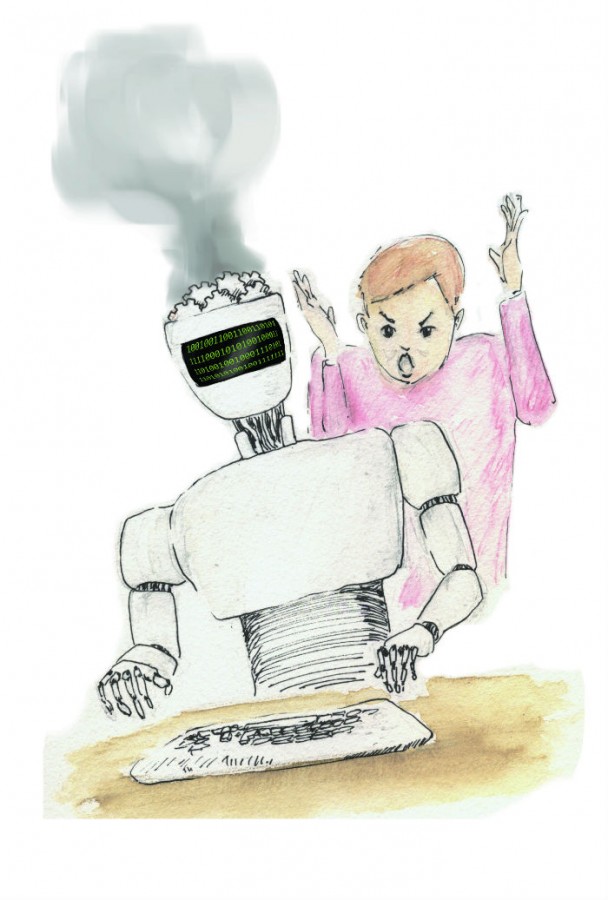Languages have progressed along with changing cultures, adapting to new generations. With our generation, the millennials, we see a halt of adaptation. Instead, our language is being drowned out because of the simple style of communication through the smartphone.
Whether you like it or not, you most likely are addicted to technology.
This smartphone use is more than just surfing the web and uploading pictures, it has become a keystone for our generation’s interaction. What began as only a small subculture has transformed to the main component of our whole culture. According to a study conducted by the Nielson Company, 85 percent of millennials owned a smartphone in 2014.
Meaning that without the smartphone, millennials would have a completely different impact on the world.
The positive effects of our smartphone use are undeniable. However, there are many unnatural aspects about new technology that fail to be brought into mainstream conversation.
Easy access to communication helps us stay in touch with others. Although the concept of instantly communicating with people in other locations is not new, it has become our main way of interaction. We now rely solely on verbal communication which lessens the energy that language was meant to express.
Language is in no way meant to stand still. It is the direct result of the need for interpersonal connection and the want to convey emotions. All languages represent different energies pertaining to their cultures. Some languages have outlasted civilizations while others are relatively new. Either way, all languages have individual aspects that make them beautiful.
When a non-tech savvy adult composes a text, it reads in the same manner that they speak in. The opposite is reciprocated through a young adult that is accustomed to communicating through text. The habitual manner of speaking carries across all platforms.
The problem is that the millennial way of speaking shares only a shallow resemblance to speaking in person. Hanging only by a thread thanks to the mere similarity of language.
This trend will only continue to get worse the more that future generations rely on technology. It is necessary that we prevent these future problems and preserve the sanctity of language before it becomes a bigger issue.
The first solution would be to stop autocorrect. Autocorrect is a program that lets the user know when a word is spelled wrong and automatically finishes words before they are typed. Not only does this encourage the user to not actually learn how to spell correctly, it also finishes sentences before they are fully composed. In a sense, autocorrect becomes more of the communicator than the actual individual.
The second solution would be to create an online dictionary along the lines of Urban Dictionary that allows the user to upload their own words and redefine previous words. Connotation should be included along with denotation when in the dictionary. It is the only way to embody the energy and personality of our culture. This dictionary should be the official dictionary of our language. No longer should we give Merriam-Webster such a powerful monopoly on a concept that is so fundamental to all our lives.
At this point, it is very difficult to stop how technology is affecting our culture as a whole. However, we can lessen technology’s impact by refusing to let it take over our lives.
We need to fix the current problems and address the future problems before they arise. Let’s define the difference between what is human and what is machine.
Sam Rios can be reached at [email protected] or @theeemessiahon Twitter.










Joe // Feb 10, 2016 at 5:14 pm
I read this article and all I hear is “hurr durr technology is bad, fire is evil and Thomas Edison is a witch”